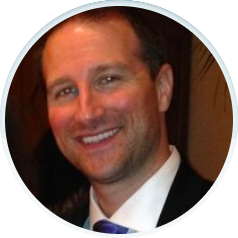 Is accountability an issue in your home care agency? Research shows that the lack of accountability is one of the most common inefficiencies in caregiving organizations, and it can be the main reason for hidden deficiencies.
Is accountability an issue in your home care agency? Research shows that the lack of accountability is one of the most common inefficiencies in caregiving organizations, and it can be the main reason for hidden deficiencies.
The breakdown in the accountability roadmap typically stems from a lack of clear concise goal setting tied to the bigger picture and lack of consistency with 1-1 communication. It not only causes issues in the workplace, but it also is noticed by those receiving your care and experiencing your service. When there is no clarity in the expectations and feedback on the delivery of the work, those hidden problems only end up getting bigger.
3 Steps to Implement Accountability in Your Organization
Successful leadership sets clear expectations for internal operations, sales staff, and caregivers. Making sure there is a system in place for continuous follow up, accountability meetings, and frequent check-ins with clients and staff members.
1. Hold Consistent In-Person Meetings
One of the most powerful ways to begin implementing accountability is by setting a weekly meeting that has required attendance. If possible, this meeting is best in person. We’ve seen that phone communications can be interrupted by outside distractions. One of our home care clients at Sixth Sense Solutions switched his meetings from phone calls to in-person meetings and saw consistent attendance and experienced much more engagement from his team. Any time someone was going to miss a meeting, it was known well in advance because the person was not going to be in or around the facility. This helped prioritize what needed to be discussed and made it easy to get started on time.
2. Have an Agenda & Follow Up
The same client who was holding his team meetings on the phone was also hosting unstructured meetings without an agenda. Since he started working with us, the company has been meeting consistently for the last year. They also implemented a structured method based on Wickman’s traction (method) for meetings. Having structure is important. This has created responsibility, specific targets, and actionable items each member is accountable for in regards to sales, delivery of service and quality. For a more general team meeting, we recently wrote a blog that contained the Ultimate Sales Brief, which can be applied to review with field staff such as your RNs and other caregiving meetings as well. Like Wickman’s method, it will help keep your meeting focused and will hold everyone accountable for sharing their goals.
3. Don’t Allow Ego Into the Room
If your meetings are not productive and are continuously stopped because of disagreements, tangents, etc., ego may be getting in the way of your success. When first implementing regular meetings and a structured agenda, you may get some push back. These arguments can be unproductive and need to be addressed. It takes time to master staying on point and agenda, keeping ego out of the room; therefore, you might find it beneficial to work with an outside consultant who is trained to help recognize the ego and its counterparts with unnecessary drama and emotional expansiveness.
Driving Better Business for Your Home Health Business
Together we will engage your sixth sense and help you develop a positive dialogue with your team and clients. Over time, you will see how regular meetings, focused agenda, and controlling the ego in the room makes your business more successful.
We are currently offering a FREE Discovery Meeting and Strategy to help you implement a feedback loop in your organization. Learn about the offer here.
About the Author
Keith Freeman, MBA
A dynamic thinker with a great sense of humor, Keith Freeman, MBA, is a Strategic Consultant offering unique solutions to transform healthcare organizations such as hospitals, hospice/palliative, home health, and home care, RCFE/assisted living and skilled nursing facilities and professional healthcare staffing services that support them.


